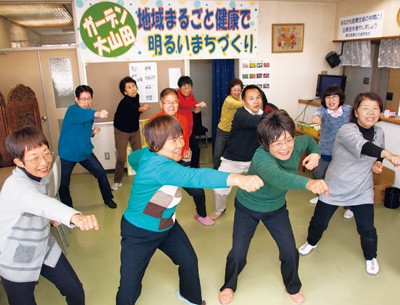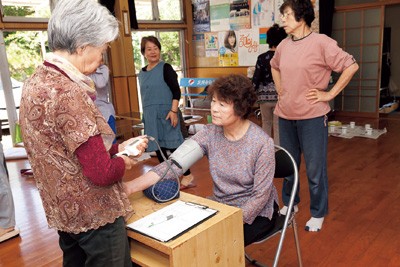When it comes to healthy ageing, Japan has some important lessons to teach.
Home to the world’s largest ageing population, with 35.2 million people older than 65, the country has developed a series of measures to provide early preventive care programmes and delay dependence on long-term care.
In 2011, the government introduced a plan for Integrated Community Care, aiming to promote social participation and preventing isolation, which was identified as a strong risk factor and long-term care and premature mortality.

Co-operatives have been pioneering voluntary preventive health practice since the 1960s under han groups – units of three or more members who are local residents. They get together to check their blood pressure, body fat and other indicators with the help of a medical professional. They also get to learn about diseases such as cancer, diabetes, stroke, Alzheimer’ s or heart attacks and risk factors.
Some han groups engage in activities such as exercising and organising meals. Trained resident members then go on to provide health checks for local residents at supermarkets, public places, as well as health festivals organised by municipalities.
The co-ops have developed a set of goals for healthy habits and health indicators. These include eight goals for healthy habits (having an orderly lifestyle and sleeping well, managing stress and getting enough rest, quitting smoking, avoiding excessive drinking, continuing regular exercise, having balanced meals with less sodium and fat, having breakfast and avoid snacks between meals, and brushing teeth thoroughly at least once a day) and two health indicators (maintaining healthy weight, body fat and waist size, and striving for the healthy blood pressure). In 2018 around 140,000 people participated in these activities nationwide.
At Morioka Health and Welfare Co-op, 1,948 of those who took part in the programme achieved their goals. The co-op also hosted workshops in schools and nurseries, bringing together teachers, students and pupils.
The Japanese Health and Welfare Co-operative Federation is made up of 111 health & welfare co-operatives with is 2.92 million members.

All health and welfare co-ops abide by the Health and Welfare Co-op’ s Charter of Life, a code of conduct which emphasises the importance of having users and providers of services acting together.
Consumer co-ops are also becoming community hubs. The Okayama Consumers’ Co-operative Union works with Okayama Health and Welfare Co-op every year to host various activities for members and the local community. Last year 13,286 people participated in the events. Likewise, agricultural co-ops are involved in providing healthcare service to those in rural areas and promote health education and check-up activities for members.
Japan’s community based approach to healthcare provision and prevention has received the seal of approval from the World Health Organisation.
In an article looking at community-based care for healthy ageing published in August 2019, the WHO highlighted that for community-based integrated care systems to succeed; collaboration between community members and diverse service providers was indispensable.
WHO also argues that integrated care for long-term care prevention should include more community-organised interventions for the whole community.

